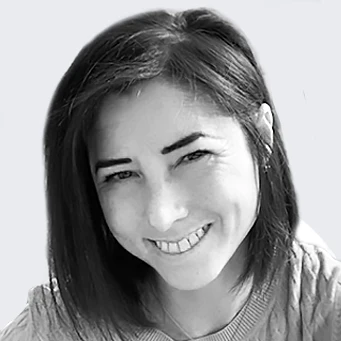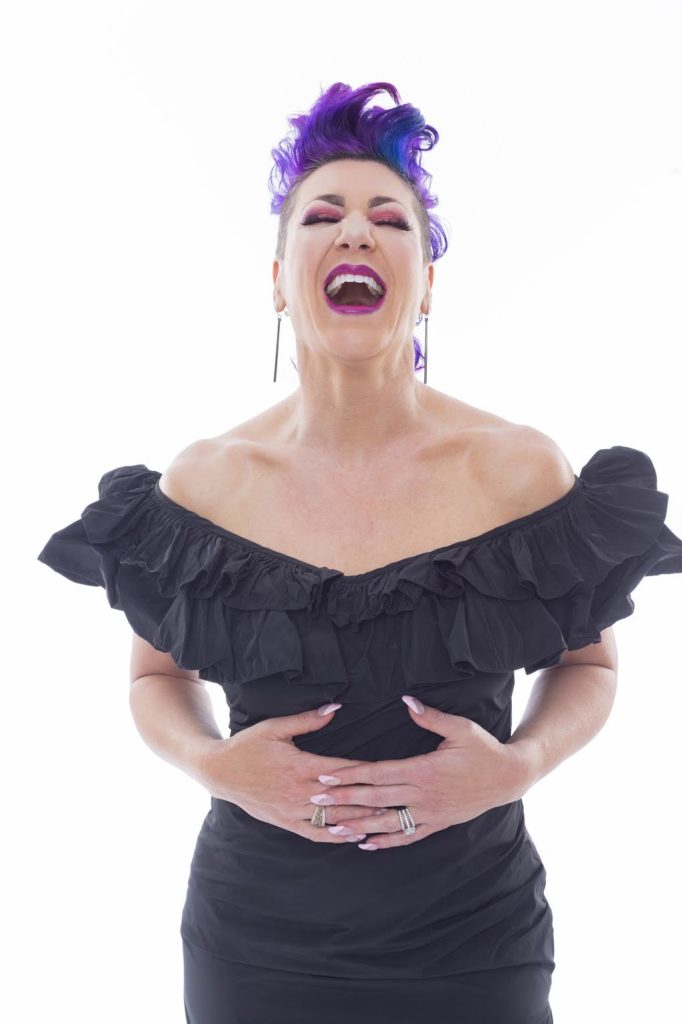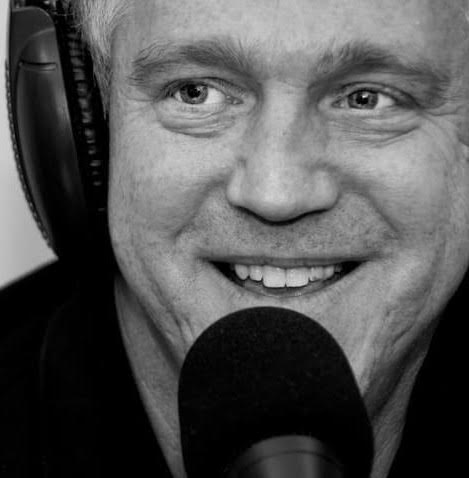In this episode of the Business Legacy Podcast, we are joined by Casey Kang Head, the CEO of The Happier Hustle. Casey shares her inspiring story of overcoming cancer 3 times and the subsequent realization the lack of resources for post-cancer treatment.
Casey discusses the challenges and fears she faced during the post cancer process, emphasizing the importance of mindset and incorporating physical, mental, emotional, and spiritual aspects into the recovery journey. Their ultimate goal is to impact as many people as possible by sharing their story, teaching emotional management skills, and breaking the stigma around not feeling great all the time.
Topics covered in this Episode:
- The unforeseen consequences and mindset challenges after surviving cancer
- Mindset Shifts: Meditation and Gratitude for Alleviating Fear
- Creating connections and spreading awareness around post-cancer recovery treatment.
Connect with Casey here:
Website: https://casey-head.mykajabi.com/
LinkedIn: https://www.linkedin.com/in/casey-kang-head-37a4b488/
Connect with Paul here:
Website: https://innovativewealth.com/
Instagram: https://businesslegacypodcast.com/
Enjoyed this episode? Leave us a review and rating here: https://podcasts.apple.com/us/podcast/legacy/id1575634019
Thank you for listening, and hope you enjoyed this episode.
Please take the time to rate and review our show. Great reviews help us to reach a wider audience and inspire us here at Innovative Financial media to keep it up.
Other episodes you’ll enjoy:
What is your relationship with Risk?
Growth, Persistence & Perseverance w/ Mike Molinet: How to Achieve Success
Timestamped summary of this episode:
[2:53] Welcome to the Business Legacy Podcast.
I have a very special guest today. I have Casey Kanghead, CEO of The Happier Hustle. Casey, welcome.
Well, thank you for having me, Paul. I appreciate being here and I’m grateful to be connected with you and your audience.
So Casey, tell us how we got here and tell us a little bit about your story and a little bit of snapshot.
[3:22] Yeah. So long story short, I am a three-time cancer survivor of acute lymphoblastic leukemia.
And I had a stroke during my treatment, and a lot of my cancer was very aggressive.
And so there were many, many moments where we didn’t, the outlook was very grim on paper.
And we just held on to the hope that there would be, you know, Hail Mary, and there was.
And so as a result of that Hail Mary, and I’m here.
So, and I was diagnosed at 31. I was pretty young to have gone through something like that, for over the course of five years.
Finding Purpose After Cancer Survival
[4:40] So three-time cancer survivor. I’ve been, as you probably met, like there’s so many people that have gone kind of through that process.
What inspired you to start what you’re doing now? So for me personally, I got through five years of treatment, all the ups and downs like it was nothing.
I don’t know how or why, but I really struggled with the aftermath of surviving and there, weren’t a lot of resources that were genuinely helpful.
And so I hit a rock bottom moment in my life, and I was like, I can’t live like this.
Going back to working 50 hours a week and commuting every day for two hours and all these things that I was doing prior to cancer, I went right back to.
And so I was like, this isn’t working. There’s so much disconnect here. I am so unhappy.
And as a result of me figuring it out and just sharing, Although, yes, we are very grateful to be alive.
We have so much that happens to us that disrupts our lives.
And how do you pick up the pieces after that?
[5:53] And the more I shared about the mental, emotional, physical recovery, the more women were reaching out and asking, what are you doing? What did you do?
And so I just started organically sharing. And then I was like, wait a minute, there’s something here.
I slowly started to realize, this is maybe why I’m here. This is why I’m here, so women can get back to living life.
And I’m like, and I just kept going, and I just kept doing it.
Leaving a Job for Personal Fulfillment
[6:23] Where were you working at the time that you were going through all this?
So I was working for a steel company where we sold, we were a distributor for steel, and it was extremely competitive, really male dominated environments, which is why I was working like 50 hours a week and just about feet at the table, you know, and I just, it wasn’t in alignment, like I couldn’t get up and go sit at the desk for eight plus hours a day, and go home and it wasn’t filling my cup up anymore. I was trying to chase this dream, that no longer fit my purpose and my meaning in my life.
[7:07] And so I made a really hard decision to walk away after asking for to be able to work from home and this is part of a pandemic. And they wouldn’t agree to it. So I had to tip away.
So what was going through your head as you let them know that you weren’t going to be working there anymore? What was your thought process? What was your plan if there was a plan?
There wasn’t really a solid plan. And quite frankly, I was scared to death. I was at this company for 10 plus years. And I was scared. I was like, they treated me well through treatment.
I felt like I owed them. I felt like they were an extension of my family, the way they supported, me and my husband at the time through treatment. And it was like, I felt like I was letting them down, quite frankly. And so that decision took me six months to make.
The Beginning of a Challenging Journey
[8:09] And what were the first few months like when you made that decision?
What did you do? Where were you? Where was your mindset at?
My mind was just like, okay, you know what you want to do. You have a rough idea.
So just start going. And I like just dove into this mission of put the pieces together to help people.
Like it doesn’t have to be perfect. It doesn’t have to look the way you eventually want it to.
Stark and it’s messy and it’s ugly and it was so looking back it was like not a smooth process at all and there were a lot of highs and lows and I made a lot of mistakes um but I think that was the part of the process obviously of creating something that didn’t never didn’t exist there was nothing to compare it to there was nothing to say well this is kind of like that and it was something no one had even really understood what I was doing. And so just explaining it to people, it’s really challenging even though they’re going through it.
Unforeseen Consequences and Mindset Challenges
[9:18] Yeah. What are a few things or a few unwritten, not consequences, but things that people don’t necessarily think about once they go through that? Just shine a light into some of the mindset or just some of the things that the normal person wouldn’t know. Right. And so there’s a lot of, fear, love. Am I going to go through this again? Because I got through it. I don’t want to do it again. And is it going to come back? And so you live your life making decisions based on fear because you’re so scared to have to do it again. So there’s a lot of fear. There’s a lot of anxiety.
There’s a lot of side effects that come with it that you don’t think about when they tell you, this is what you’re going to go through, chemotherapy, radiation, all these things, surgery. They don’t really, I mean, you know logically what some of the side effects are are going to be your ramifications on paper, but you don’t know how that’s going to impact your life.
Beginning the Journey of Recovery and Transformation
[10:25] And how do you map that out or where do you even begin at that point?
Right. And that’s the question. Where do we start? Because it’s mental, physical recovery. It’s mental, emotional, spiritual. It’s all of it. And I started my own personal journey with physical recovery because I was like, okay, I know how to do that, how to build back stamina, build strength. The other parts were the parts that I was I was trying to, for lack of a better word, hodgepodging together, taking things from different things that weren’t related to cancer at all and making it work.
These are the questions that I asked myself that actually helped me let go of this old life and embrace this new life that’s so drastically different.
- Did you start with the physical aspect first and then the mental?
Where did you hodgepodge or put it together?
I started personally with the physical part. However, the program that I developed encompasses all of it, the collapse time because I think when you have that physical component of movement and seeing your body change, as well as your mentality and your emotions change at the same time, it speeds up the recovery process and the healing journey so you can get back to living life.
[11:49] It. So is there any, just for the audience, I know the audience has family friends and loved
Mindset Shift: Meditation and Gratitude for Alleviating Fear
[11:55] ones who have gone through this, the fear of having it come back, what is one or two things that you have found have put someone in the right direction to not necessarily remove that fear, but to alleviate some of that thought process? Yeah, I’ve always said 90% of the journey is mindset. And so I didn’t know, I didn’t meditate until after I was done with treatment. I found meditation and it’s one of the biggest ways in which you can start to control your thoughts. It’s the awareness of even what you’re thinking. So I would say meditation, gratitude always. I wake up every day and what am I grateful for? Not focusing on anything that was taken away from me or the chronic hip pain that I live with and all these things that yes, we can all absolutely focus on, but I immediately give myself gratitude. It’s a lot of connecting back to your mind and body together. So I would say even if you don’t practice yoga, yoga is tremendously helpful in connecting back to your body and understanding what’s going on with it.
Finding Gratitude in Different Perspectives
[13:18] Yeah, it’s funny that word gratitude. Initially, because I’ve done this a few times where you find yourself writing the same few things down, but then you do it in a different way where you’re trying to figure out these different out of the box things to be grateful for. And when you’re in yoga, it could just be, I’m grateful that I didn’t pass out or I’m grateful that I could actually move or I’m just, it’s, it’s funny how it changes the lens because you’re changing the physiologically physiology of where you’re going, especially in heated yoga. Um, so I can definitely relate to that.
[13:59] 100%. And I think just focusing on, I’m not trying to Pollyanna any situation at all, But the reality is, instead of being reactive to life every day, being proactive with how, okay, yeah, that thought came in, but I’m not going to let that dictate how I operate today.
The Fulfillment of Helping Clients Transform and Thrive
[14:25] And what do you look forward to as you’re growing this? What has been the most fulfilling about this journey for you?
Honestly, working with the clients and seeing them actually change, going from being in emotional mental distress, where the first time I talked to them, they’re really at their limit of what they can hold and nine times out of ten, they’re crying, to seeing them start to smile about halfway through the program and really coming back to life, that’s the great gift of this journey of doing that.
Bringing Life Back: A Legacy of Impact
[15:07] And given kind of the context, right, you’re giving life back to people, What do you see your legacy as or how would you like to be remembered?
Breaking the Silence: Impacting Lives through Personal Stories
[15:21] I think it’s a ripple effect. I think I want to impact as many people as possible, whether it’s just hearing my story of not giving up hope or just working with the women that I do to teach them how to like be able to not be so anxious and afraid or just having someone feel not alone. Because a lot of times you feel like you’re on an island because you’re like, why do I feel this way? I shouldn’t feel this way. But then you find out like everyone feels that and you’re like, oh my gosh, because we don’t talk about it. And I think that is really, yeah, like there’s so much. It’s very psychologically interesting to be honest, that there’s a lot of shame around not feeling 100% great and grateful to be living life.
[16:15] What’s one thing that you had mentioned that, okay, why do I feel this way? What’s one thing that you thought of or that thought and then you realized you didn’t necessarily realize that other people thought that thought? What’s a good example of why do I feel this way, but then you essentially met other people and say, oh, there’s actually other people that feel exactly the same.
- I would say the disconnect of yes, I was grateful to be alive, but I wasn’t happy.
And I thought genuinely there’d be sunshine and rainbows. I’d be so ecstatic to be living life every day. And I woke up every day miserable. And I didn’t understand that.
[16:57] CB Yeah, I could see how that would be. You would look back and say, okay, what’s wrong with me, right?
Like, I’m alive, why shouldn’t I be happy?
The Challenges of the Speaker’s Work
[17:07] Interesting. In regards to your work, what would you say is the most difficult part about what you do?
Balancing short-term and long-term plans for cancer research
[17:22] I would say, because I want to do so many things, it’s really focusing on what, the short-term versus the long-term plans are. And it’s really hard to just go, yes, that’s in the future, but we have to do ABC first to get to XYZ.
- Yeah. So prioritization because it’s such a large, I think it’s an idea beyond yourself where it’s such a large problem to be solved that there’s however many people that have cancer that survive from cancer every year. I can imagine it’s not something that you could you could do alone or let let alone a few dozen people can do it on so.
[18:16] What’s the overall vision for for what you do is it is it being able to have other people be part of be part of the movement what what’s your vision I honestly like a vision of mine would be to have this is like a big hairy audacious goal that probably, I don’t know if it’ll ever happen, but where every hospital, has a survivorship program. That would be ultimately my goal. But again, it’s really big and where do you start? And it’s scary and it’s insurance versus hospital versus, all these things. And there’s a lot of moving components.
- And you know what? And this is where I really enjoy doing the podcast. We’ve interviewed a hundred people, a hundred odd people in different aspects of this life, right? And so this gets sent, to all those people, right? And so all those people who have had a loved one who has gone through this, they’re able to hear it and they’re able to hear and put together the pieces. And so, So it could just be one connection away that introduces another door to and then introduces another door.
Creating connections and spreading awareness through the podcast
[19:33] So yeah, where can we find more about your project and a little bit of them for yourself?
[19:41] Yeah. So I have a website, it’s the happier hustle.com and I’m on Facebook and Instagram at the happier hustle and it’s me, not a robot, sorry.
Well, thank you so much, Casey. And then we’ll catch up soon.
Thank you, I appreciate it.
[20:05] Bye-bye.



